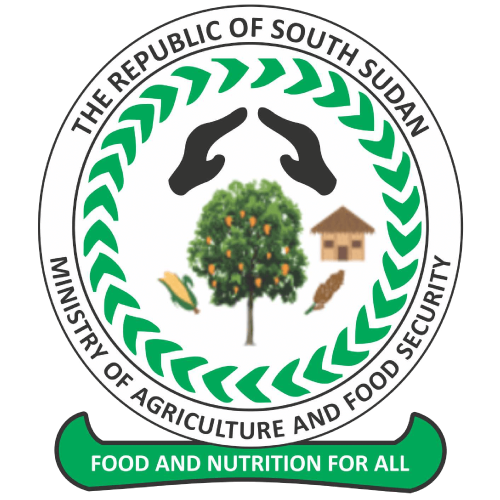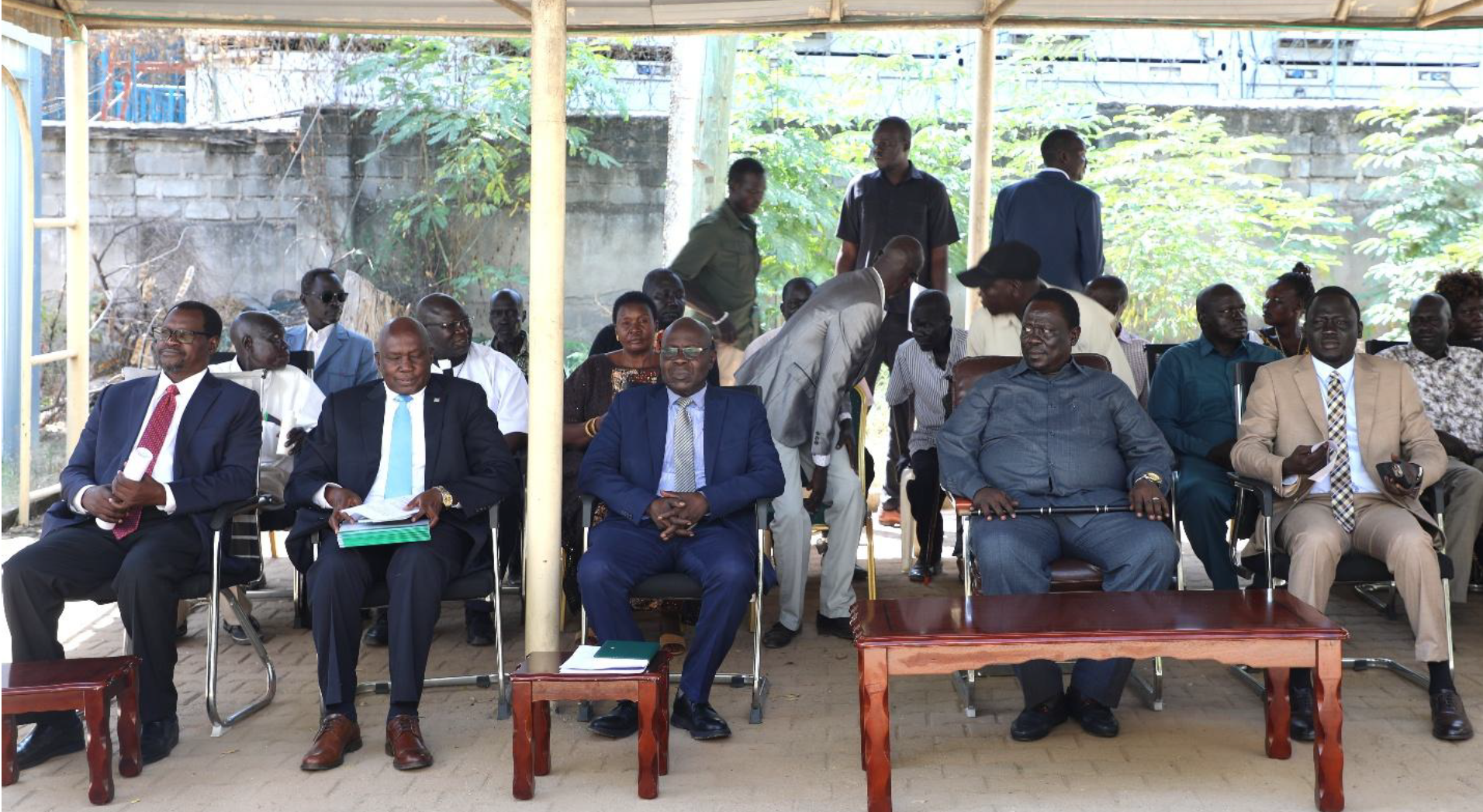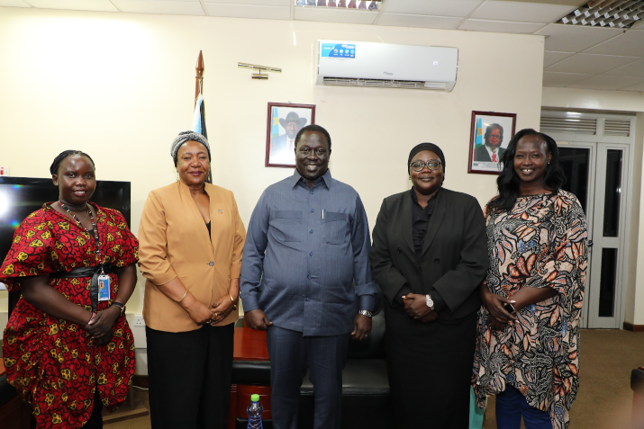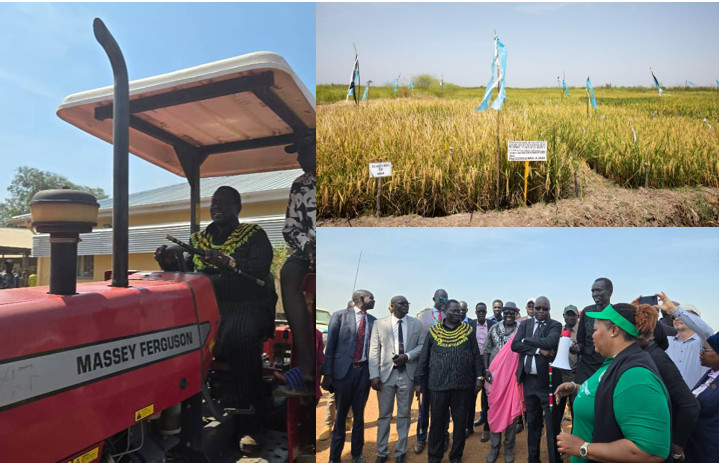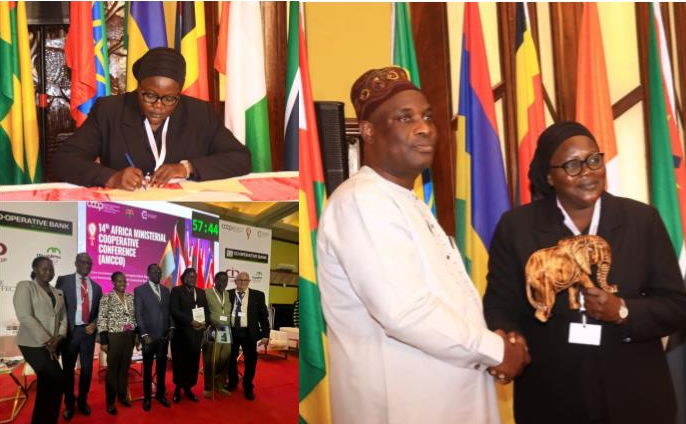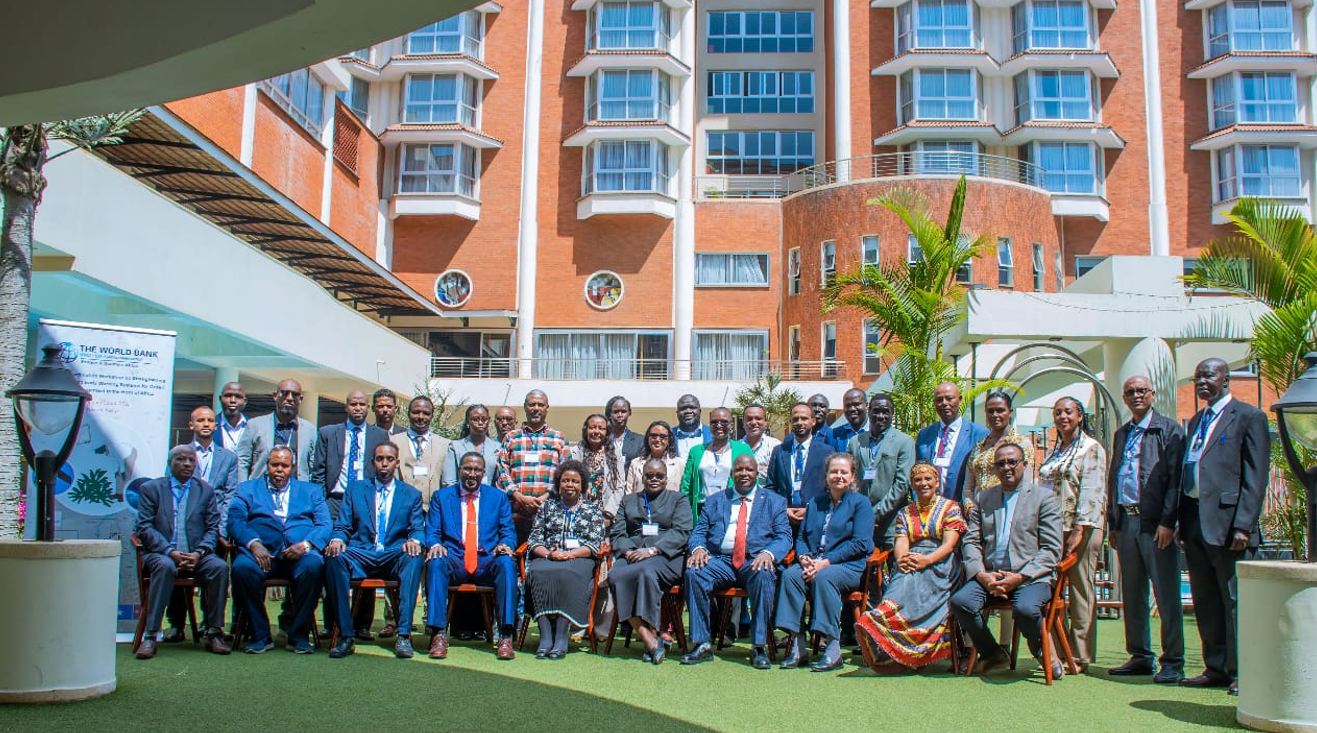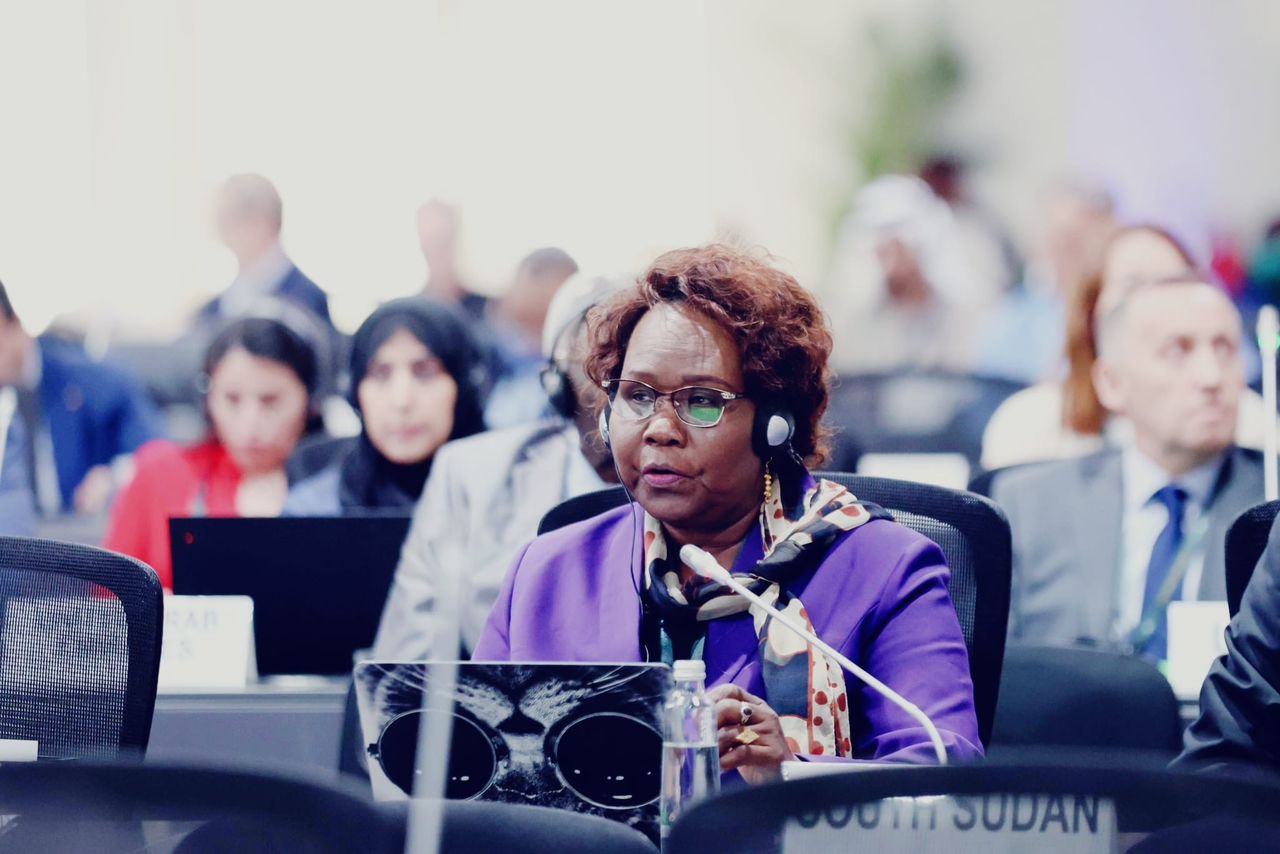
Hon. Josephine Lagu Yanga, the Minister of Agriculture and Food Security (MAFS) follow proceedings at COP16 in Riyadh Saudi Arabia held between December 02-13, 2024. Photo Credit: MAFS.
MAFS
The Honorable Josephine Lagu Yanga, Minister of Agriculture and Food Security, and head of the South Sudan delegation to the United Nations Convention to Combat Desertification (UNCCD) at the COP16 in Riyadh, Saudi Arabia, engaged in significant discussions regarding drought resilience, land degradation, and innovative solutions for sustainable land management. COP16 ran from December 02, to December 16, 2024 COP16 served as an essential venue for South Sudan to present its experiences and commitments in tackling climate challenges. The delegation comprised Khamis Hagar, Charge d’Affaires of South Sudan to Saudi Arabia, and Dr. George Tadu, Director General of Research at the Ministry of Agriculture and Food Security.
Climate Challenges in South Sudan
In her address at the COP16 event, Hon. Josephine Lagu highlighted the distinct challenges faced by South Sudan, a nation grappling with the dual impacts of severe floods and droughts, both of which are direct consequences of climate change. She provided an overview of the situation, emphasizing recent data that highlights troubling trends: Regional meteorological data indicates a 15-20% reduction in rainfall and a temperature rise exceeding 0.4°C per decade over the last 30 years. This year, seven out of ten states experienced significant flooding, prompting the government to declare a state of emergency. Currently, 7.5 million individuals face food insecurity due to climate-related and man-made displacements. Projections suggest that sorghum yields may decline by 5-25% between 2000 and 2030.
Government Commitments and Digital Innovation
Faced with these challenges, the Hon. Minister outlined decisive steps South Sudan is taking through several key initiatives to combat the situation and these include but not limited to implementation of the National Environmental Policy, CAMP, and IDMP, launch of a National Strategy for climate change adaptation and mitigation, development of a comprehensive Flood Preparedness Response Plan, and the implementation of the National Food Security Strategy and Disaster Risk Management.
Hon. Josephine Lagu Yanga also highlighted the country’s digital agriculture projects, which were launched in three South Sudanese counties in November 2023 with the goal of mitigating the effects of climate change on agriculture through E-Extension services, demonstrating South Sudan’s commitment to innovative solutions. The project includes innovative features for addressing climate change, such as the use of audio and visual content in local languages, offline data collection and dissemination, biometric user registration for improved agricultural data accessibility, integration with regional cooperation, and peace building.
During the Peace Forest Initiative High Level Partners Roundtable, the Minister took part in discussions about the critical intersection of land restoration and peacebuilding. Key themes that emerged during the discussions include the importance of cross-border cooperation in addressing shared environmental challenges, the need for harmonized regional policies and improved data sharing systems, the role of community-led conservation in fostering social cohesion, and the potential for climate-smart agriculture value chains in the Horn of Africa.
Looking Forward
In her closing remarks at COP16, Hon. Josephine Lagu Yanga highlighted South Sudan’s dedication to expanding digital innovation projects for sustainable farming, implementing satellite and drone technology for early warning systems, developing predictive analytics for land degradation patterns, and strengthening regional cooperation through initiatives such as the African Drought Initiative.
The Minister acknowledged that achieving success necessitates a multifaceted approach, integrating local expertise with contemporary technology. With ongoing support from the UN and development partners, especially in capacity building and climate finance mobilization, South Sudan maintains a positive outlook on creating a more resilient and sustainable future.
The dialogues at COP16 have underscored the significance of cooperative efforts in tackling climate issues. By fostering regional collaboration, embracing technological advancements, and supporting community-driven initiatives, countries can unite to address desertification and advance sustainable land management practices that serve the interests of both humanity and the environment.
